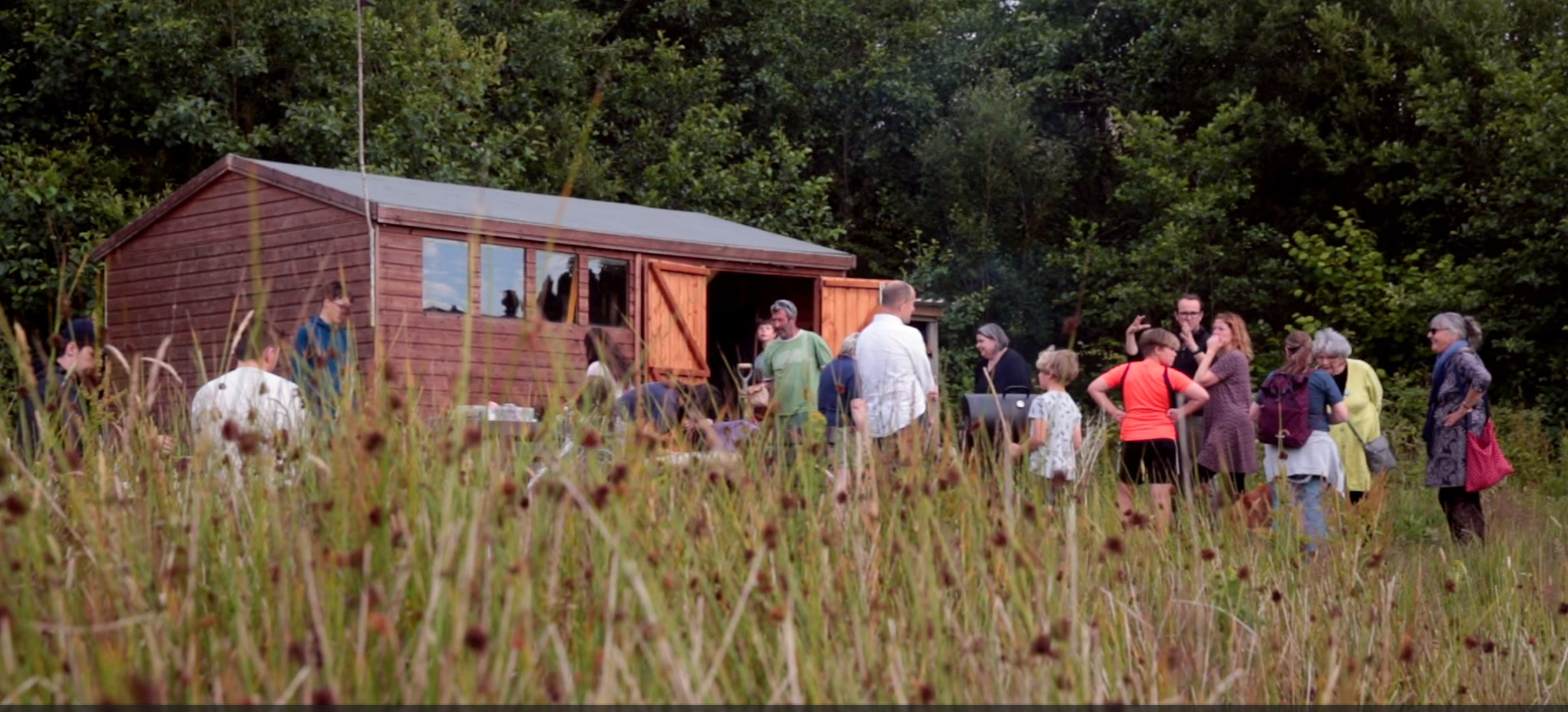
Natural Resources Wales (NRW), University of Wales Trinity Saint David & Eisteddfod Genedlaethol Cymru
The Challenge
- To promote the issue of climate change and food waste in a Welsh-medium context.
- To learn from collaboration with Welsh-speaking and non-Welsh speaking communities.
- To promote dialogue between local food growing communities and the cultural sector.
The Solution
The partners developed Gwledda, a project which used creative techniques to spotlight food production in Ceredigion. Experts were invited to engage with local community growers, educating them on environmental issues around food production. This provided an opportunity to discuss ideas creatively, empowering communities to become greener in the long-term and re-establishing confidence in social interaction following the pandemic. A programme of community workshops for all ages was delivered, featuring artists, musicians and storytellers. This offered a creative outlet for the community to share their stories, offer their insights, and develop special moments and performances for a showcase event at the Eisteddfod.
The Results
Gwledda employed artists to inspire food growing communities across Ceredigion to be creative by sharing stories, writing poetry and song. A huge picnic blanket was created to capture the narrative, while celebrating food, local produce and culture and exploring environmental responsibilities.
Working with five community groups across Ceredigion, the programme reached 100 people across all age groups, who were then invited to take part at the Eisteddfod.
The project met artistic expectations, with community groups thriving and creating strong and creative relationships with the artists involved.
CultureStep supported the project by funding the workshop facilitator and freelance artists.
The Endorsement
The Eisteddfod is committed to making the event more sustainable – looking at ways to reduce environmental impact and play a valuable and inspiring role in shaping a greener future. We were eager to bring our audience along on the journey and use the arts as a powerful tool to educate and inspire change. ‘Gwledda’ (Feasting), with its strong environmental message, helped us with this aim. Audiences and participants benefited from being educated on the impact of food waste and climate change whilst enjoying the arts. The Creative and artistic engagement opportunities also positively impacted participants’ health and wellbeing, it was wonderful to see, and we believe that this can be seen in the project video created.
Elen Elis, Eisteddfod Genedlaethol Cymru
For NRW, the project supported its aim of pursuing sustainable management of natural resources and apply the principles of sustainable management of resources. The project also enabled all the partners to promote understanding of the ‘science’ underpinning the climate crisis in a Welsh-medium context, and to also learn from the creative and lived-experiences of a collaboration with Welsh-speaking and non-Welsh speaking communities.
Joseph Roberts, Natural Resources Wales.
This project has delivered many benefits for UWTSD, through supporting Wales’s prime cultural festival on of its outreach programmes, and strengthening the long-term partnership between local partners, Tir Glas and the Eisteddfod, the project supported Tir Glas’s aims to Improve the economic, social, environmental, and cultural welfare of Lampeter and the vicinity, contribute constructively to re-imagining and co-creating the Wales of the future, establishing local/county networks in the Centre’s name, promoting collaboration and co-participation in the fields of food, rural tourism, and enterprise, empower the local community to take ownership of the vision and contribute to its development, educate the local population and others about the impact of the climate emergency, support the Welsh language as a community language where it has an opportunity to develop and thrive, and celebrate the rural Welsh way of living, its heritage and culture.
